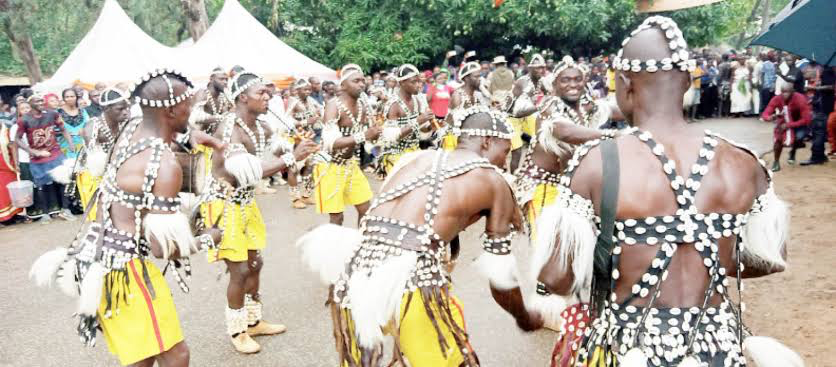Plateau State Tribes: A Comprehensive Guide To Ethnic Groups And Cultures
Plateau State, located in north-central Nigeria, is one of the most ethnically diverse states in the country. Known as the "Home of Peace and Tourism," it is famous for its cool climate, scenic landscapes, and rich cultural heritage. With over 50 ethnic groups, Plateau State is a melting pot of languages, traditions, and customs, making it one of Nigeria’s most culturally vibrant states.

In this guide, we will explore the major ethnic groups, their languages, and cultural traditions, highlighting their unique identities and contributions to the state’s rich heritage.
Major Ethnic Groups in Plateau State
Plateau State is home to numerous ethnic groups, each with distinct languages, traditions, and historical backgrounds. Below are some of the most prominent tribes in the state:
1. Berom (Birom)
- Language: Berom
- Where Found: Jos North, Jos South, Barkin Ladi, Riyom LGAs
- Cultural Identity:
The Berom people are one of the largest indigenous ethnic groups in Plateau State. They are known for their farming skills, iron smelting, and rich traditional festivals.
The Nzem Berom Festival is one of their most significant celebrations, showcasing traditional dances, music, and ancestral worship.
2. Ngas (Angas)
- Language: Ngas
- Where Found: Pankshin, Kanke LGAs
- Cultural Identity:
The Ngas people have a long history of traditional leadership and warrior culture. Their paramount ruler is the Ngolong Ngas.
They celebrate the Pusdung Festival, an annual cultural event that features traditional wrestling, storytelling, and communal feasts.
3. Tarok
- Language: Tarok
- Where Found: Langtang North, Langtang South LGAs
- Cultural Identity:
The Tarok people are known for their warrior traditions and strong military heritage. Historically, they played a key role in resisting invasions from external forces.
The Ilum O’Tarok Festival is a major cultural celebration where the people honor their ancestors and showcase traditional music and dances.
4. Goemai
- Language: Goemai
- Where Found: Shendam, Mikang, Quan’pan LGAs
- Cultural Identity:
The Goemai people have a rich history of farming, hunting, and traditional medicine. Their traditional ruler is the Long Goemai.
The Pan Festival is a major event that celebrates the unity and culture of the Goemai people.
5. Mwaghavul
- Language: Mwaghavul
- Where Found: Mangu LGA
- Cultural Identity:
The Mwaghavul people are known for their deep respect for traditional governance and strong community bonds. Their traditional leader is the Mishkaham Mwaghavul.
The Mwangavul Cultural Festival is held annually to showcase their heritage and promote unity among their people.
6. Ron (Rong)
- Language: Ron
- Where Found: Bokkos LGA
- Cultural Identity:
The Ron people are famous for their agricultural practices and communal lifestyle. They have a unique system of leadership and traditional healing practices.
The Ron Festival is an important celebration of their customs and traditions.
7. Afizere (Izere)
- Language: Izere
- Where Found: Jos East, Jos North LGAs
- Cultural Identity:
The Afizere people have a strong cultural identity, deeply rooted in their spiritual beliefs and warrior traditions.
The Izere Cultural Festival is an annual event where the Afizere people celebrate their heritage through traditional dances, rituals, and storytelling.
Cultural Festivals in Plateau State
Plateau State is known for its colorful and unique cultural festivals, which reflect the rich heritage of its diverse ethnic groups. Some of the most notable festivals include:
- Nzem Berom Festival (Berom Tribe) – A major festival celebrating Berom traditions and history.
- Pusdung Festival (Ngas Tribe) – Showcases Ngas heritage, including traditional wrestling and storytelling.
- Ilum O’Tarok Festival (Tarok Tribe) – A vibrant festival honoring Tarok ancestors.
- Pan Festival (Goemai Tribe) – Celebrates unity and cultural identity among the Goemai people.
- Mwangavul Cultural Festival (Mwaghavul Tribe) – Highlights Mwaghavul traditions and customs.
- Izere Cultural Festival (Afizere Tribe) – A celebration of Afizere customs, dance, and rituals.
Frequently Asked Questions (FAQs)
1. What is the most spoken language in Plateau State?
Plateau State has over 50 indigenous languages, but the major languages spoken include Berom, Ngas, Tarok, Goemai, Mwaghavul, Ron, and Izere. However, Hausa is widely used as a lingua franca for communication among different ethnic groups.
2. What is the main religion in Plateau State?
Christianity is the dominant religion, followed by Islam. Many ethnic groups also practice traditional beliefs, which include ancestor worship and spiritual rituals.
3. What are the major economic activities in Plateau State?
The people of Plateau State engage in agriculture, mining, and trade. The state is rich in tin, columbite, and other minerals, making mining a key industry. Farming is also common, with crops such as potatoes, maize, yam, and milletbeing widely cultivated.
4. Who are the major traditional rulers in Plateau State?
- Gbong Gwom Jos – The paramount ruler of the Berom people.
- Ngolong Ngas – The leader of the Ngas people.
- Long Goemai – The ruler of the Goemai people.
- Mishkaham Mwaghavul – The traditional head of the Mwaghavul people.
5. Is Plateau State safe for tourists?
Plateau State is generally safe, especially in urban areas like Jos. However, some rural areas have experienced conflicts related to land disputes and ethnic tensions. It is always advisable to stay informed and follow local security guidelineswhen visiting.
Final Thoughts
Plateau State is one of Nigeria’s most culturally rich and diverse regions. With over 50 ethnic groups, unique traditions, and scenic landscapes, it is a vibrant hub of history and heritage. Whether you are interested in cultural festivals, traditional leadership, or scenic tourist attractions, Plateau State has something for everyone.
Would you like to explore a specific ethnic group or cultural practice in Plateau State? Let us know!





